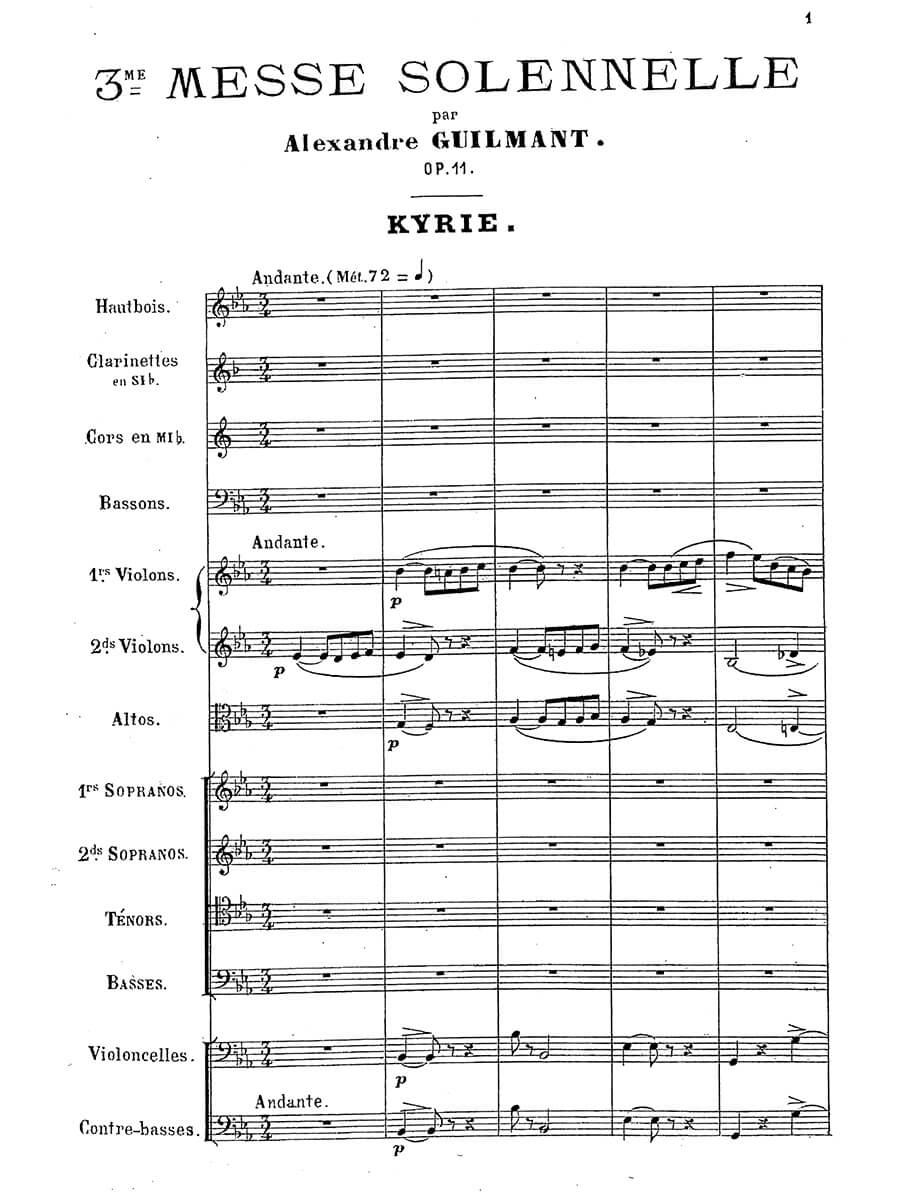Troisième Messe Solennelle Op. 11
Guilmant, Alexandre
40,00 €
Preface
Alexandre Guilmant – Troisième Messe Solennelle Op.11
(b. Boulogne-sur-Mer , 12 March 1837– d. Meudon, 29 March 1911)
Félix-Alexandre Guilmant was born in 1837 in Boulogne-sur-Mer, a coastal town in northern France where his father Jean-Baptiste Guilmant, was his first organ and music theory teacher. Later, he studied with the great Jacques-Nicolas Lemmens, the Belgian organist in the Bach lineage (Lemmens was taught by Fétis and Hesse who are counted in the line of organists able to trace an unbroken link through their teachers back to J S Bach).
Guilmant’s first significant musical appointment was as Organiste Titulaire in 1871, at the church of La Trinité in Paris, a position he held for thirty years. A lifelong church musician, Guilmant drew inspiration from Gregorian chant for his compositions. The chant also formed the framework for his organ improvisations, something for which he was renowned, drawing large crowds to hear his considerable improvisatory skill. Guilmant spent much of his life pursuing an interest in early music, researching, scoring and publishing in 1898 a ten-volume series of French organ music from before 1750, titled Archives des Maîtres de l’Orgue. His interest in the repertoire and the success of these early volumes led to a further series of works by foreign composers titled ‘École classique de l’Orgue. Both series remain valuable resources for early organ music performance.
The interest in early music was not limited to repertoire for the organ. In 1894, Guilmant, working with Vincent d’Indy and Charles Bordes co-founded the Schola Cantorum of Paris. Bordes had been working at St Gervais, a church with an illustrious musical history where the Couperin family had been organists for nearly two centuries. Here he set about reviving the French choral tradition training choristers and performing choral music by Palestrina, Lassus, Ockeghem, Josquin and Allegri (mirroring similar activity at London’s Westminster Cathedral by R R Terry). The philosophy of the Schola, which quickly became popular, was to seek inspiration for modern composers and performers amongst the works of their forbears, and in this it was enthusiastically supported by figures such as Paul Dukas. In addition to his work with Bordes, in 1896 Guilmant succeeded Charles-Marie Widor as teacher of organ at the Conservatoire de Paris, a position he held until his death. Amongst his students there were Joseph Bonnet, Gabriel Dupont, Charles Henry Galloway and Marcel Dupré. …
Full preface / Komplettes Vorwort > HERE
Score Data
| Edition | Repertoire Explorer |
|---|---|
| Genre | Choir/Voice & Orchestra |
| Size | 210 x 297 mm |
| Printing | Reprint |
| Pages | 176 |
